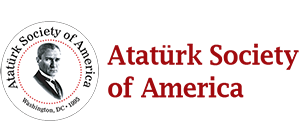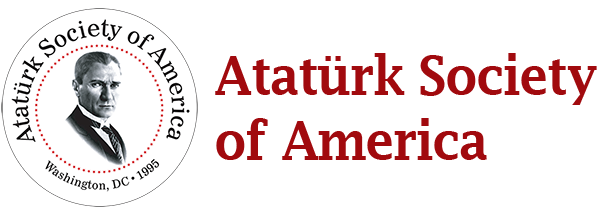I visited Turkey for a month during autumn 2007. It was great pleasure for me to join my friends and Turkish citizens to attend the 84th anniversary celebrations of the Republic of Turkey in Istanbul on October 29th. Then I participated in the 69th Commemoration Day at Atatürk Mausoleum in Ankara on November 10th, as I do every year.
From the moment I arrived in Turkey, until I left one month later, I was inundated with concerns expressed by people of all walks of life who felt that Turkey was no longer on the course delineated by Atatürk, who brought modernization and enlightenment to our country and nation.
Perhaps Atatürk’s most dramatic contribution to modern Turkey was the introduction of laicism, which is not only the separation of church and state, but also the separation of religion from educational, judicial and cultural affairs. He sought to eradicate the dominance of religion in the government in and other national institutions.
This visit to Turkey was different to my earlier visits, because of what I heard from long time friends and supporters of our Society. There are ongoing rumors that fundamentalism was creeping into all corners of government and public life. That there is increasing cronyism, with only like-minded colleagues being appointed to all government agencies including public television, ministries, high educational board, public enterprises, and especially the judicial system. That preference is given for desirous and lucrative government contracts to friends, families, religiously affiliated groups, and business leaders whose wives wear headscarves. I was very disturbed to hear that so many people believe that the current political leadership openly exploits religion for political reasons.
Atatürk established the Republic of Turkey based on the principles of reason, knowledge and innovation. Yet, I am told that the budget for the State Organization for Religious Affairs, is second in size only to the budget of the Ministry of Defense. Atatürk stressed that education and science were the two pillars the country needed to take its place among the civilized countries in the world. He established a unified education system which replaced the medreses – or religious schools which instructed students in Arabic, a language they did not understand. If Atatürk had been alive today, he would balk at the mushrooming of Koran classes around the country which teaches children Arabic even before they learn the Turkish language that Atatürk created for the new nation.
In contrast to what I have heard, I witnessed a groundswell of longing for Atatürk’s leadership on two occasions; the Republic Day parade in Istanbul, and the November 10 visit to the Atatürk Mausoleum in Ankara. In Istanbul, Turkish youth took ownership of the Republic Day parade, proudly displaying flags and holding their heads high with the Turkish military and civilian population. It was a truly moving experience.
In Ankara, when I left my hotel early in the morning on November 10th to go the mausoleum, it was a beautiful day, and there were streams of men, women and students of all ages walking with flowers, flags, and Atatürk pictures in their hands towards Atatürk’s resting place and they had obviously the similar emotion as I had. This was the largest gathering I remember so far and it was encouraging that perhaps all is not lost yet. People waited for hours for the opportunity to pause in respect before Atatürk’s tomb. Some simultaneously recited poems vowing to uphold his principles.
It is obvious that there is a serious reaction to what the public now believes is an erosion of Atatürk’s reforms. I believe there is no other country in the world whose great leader is commemorated after many decades with increasing appreciation every year.
As I write these lines on my return to our home in Washington, D.C., I remember the inscription I wrote a few years ago on behalf of the Atatürk Society of America in the guest signing book in the mausoleum: “MY GREAT ATATÜRK! WE SHALL NOT RELINQUISH NEITHER YOU NOR YOUR REFORMS.”
His political philosophy which could be summarized through three of his great dictums; “Peace at home peace in the world”, “The great guidance in life is science” and “Be proud, work and have self-confidence” continues to be probably the only way for the nations to solve their many urgent and critical problems. The human race can neither advance its progress and security nor live with fear of the religious or ethnic terrorism in an over-crowded, impoverished, polluted and fragile planet Earth in the 21st century.
Let us hope that peoples and their political leaders everywhere should soon realize and believe in a universal wisdom for a better fate for the human race before it is too late for their nations.

